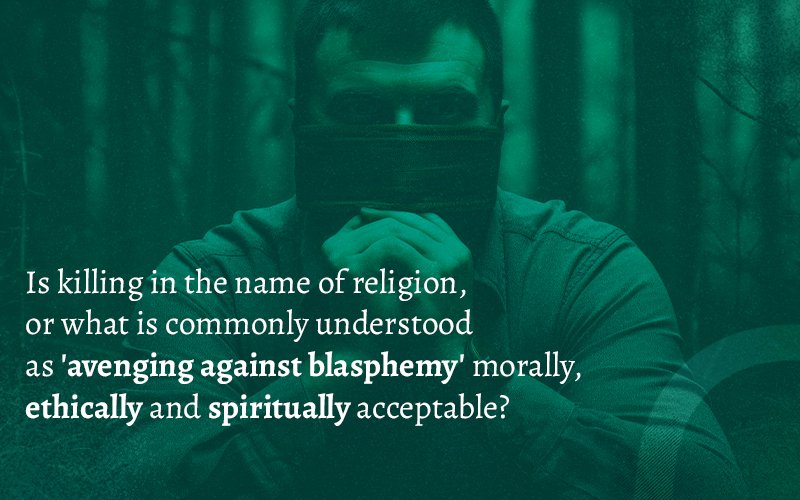In recent decades, humanity has born witness to deeply troubling occurrences of brutality committed under the banner of faith’s fervency. All too often, such atrocities have been framed as righting imagined sacrilege, igniting intense discussions regarding the ethical, philosophical and religious implications of these acts.
At the core of these discussions lies the idea of irreverence – the act of exhibiting disrespect or offense towards hallowed beliefs or icons. While characterizations may differ across faiths and communities, allegations of irreverence can sometimes lead to the most severe of consequences, even resulting in the loss of life.
From a moral standpoint, the sanctity of human life is a central tenet of many faiths worldwide. Across religions, there are clear prohibitions against murder, underscoring the intrinsic worth and dignity of each individual. These spiritual teachings raise profound questions regarding the ethics of taking a life ostensibly to safeguard religious honor.
Moreover, issues of equitable treatment and just deserts enter the discussion. While sacred texts may prescribe penalties for blasphemy, they also advocate for the impartial administration of justice through established legal frameworks. Notions of mercy and reconciliation are emphasized, implying that violent reprisal risks contradicting ethical norms. Concepts of peaceful resolution and forgiveness pervade, suggesting that lethal force born of offence taken may clash with overarching moral principles.
Ethically, the consequences of actions that involve the use of force must be carefully evaluated. Utilitarians would argue that defending sacred principles could potentially discourage future infractions, yet any harm inflicted on individuals or communities through retaliation should not be taken lightly. Similarly, deontologists maintain that morality prohibits killing under any circumstance, no matter how justified the provocation may seem.
Spiritually, many faiths emphasize practising compassion instead of vengeance, even in the face of disrespect. Responding to insults with wrath overrides the soul’s journey towards enlightenment and inner peace, both of which are attained by rising above egoistic impulses and earthly disputes. From a spiritual lens, meeting blasphemy with brutality may hinder rather than help religious development. Whether through spirituality or ethics, violence is an unwise response that breeds only more violence.
Examining real-life case studies of violent reactions to alleged blasphemy highlights the intricate interweaving of spiritual convictions, cultural conventions, and social strains. Replies from religious leaders and scholars often accentuate the condemnation of brutality and the significance of dialogue, comprehension, and amicable settlement.
In summation, the moral, reasonable, and spiritual implications of killing in the name of faith necessitate prudent pondering. While religious sensitivities must be respected, resorting to violence as a means of avenging blasphemy arouses profound interrogations about the harmony of such deeds with the core principles of morality, ethics, and spirituality. Ultimately, promoting understanding, tolerance, and benevolent resolution of disagreements is indispensable for fostering accord in our diverse global community.
